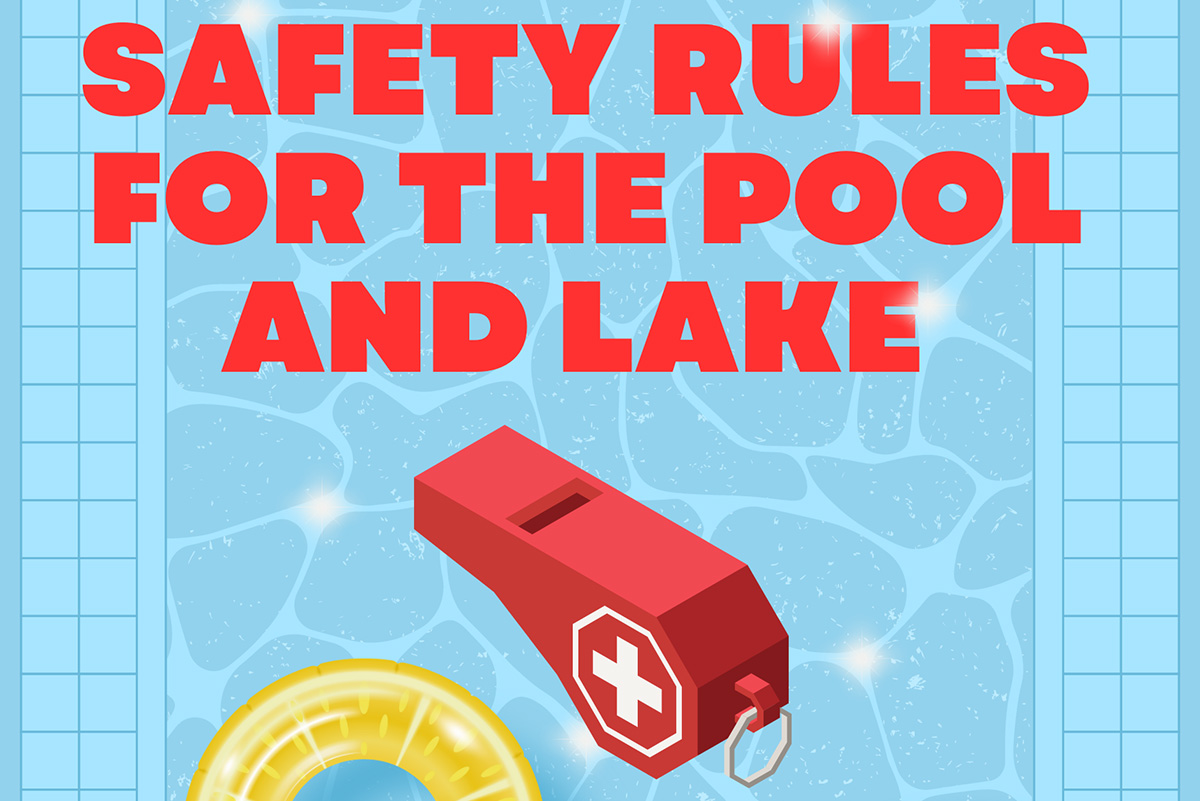Five Safety Rules for the Pool or Lake
June 7, 2023As summer temperatures beckon us towards pools and lakes, it is more important than ever to be cautious near water. Amidst the excitement of summer days, we must remain aware of the potential dangers of water in order to have a safe and enjoyable summer.
1. Never Swim Alone
Always have a buddy to swim with in case of emergency situations such as a slip or fall. If an accident were to occur and you are alone, there wouldn’t be anyone to call for help or keep you from drowning. Parents must also keep an eye on children in or near the water, especially if it’s crowded. It is important to know where your little ones are at ALL times near the water so that you can prevent or respond quickly to emergencies.
2. Beware of Mixing Swimming and Alcohol
Drinking alcohol and then swimming is a dangerous mix because alcohol impairs your judgement. You may take more risks and be less able to respond when something goes wrong. Alcohol also affects your balance and coordination, which can lead to falling off of boats or docks and can harm your ability to swim and stay above water.
Another concern is that alcohol can slow your perception and response time, so if you are supervising your children while they swim, you may not notice that they are in trouble or be able to help them if they are. And never operate a boat if you’ve been drinking; boating under the influence is a major cause of boating deaths and injuries. It is against the law.
3. Protect Against the Sun
Ultraviolet rays from the sun are at their strongest during summer months, so sunscreen should be applied often, especially if swimming or sweating heavily. Following directions for when and how much sunscreen to apply will help prevent painful sunburns and sun damage to the skin.
For convenience, keep extra bottles of sunscreen nearby when at the pool or lake to ensure that sunscreen is applied every time you get out of the water. Consider seeking shade during midday, when the sun’s rays are most direct and intense. Also, the UV index is available in most weather apps on smartphones or tablets; a UV index over 3 indicates that you should take caution when in the sun.
4. Use Caution When Diving
When swimming in a pool, pay attention to safety signs that say “no diving” and be mindful of the depth of water. Diving into shallow water can lead to serious head, neck and spine injuries such as concussions, paralysis, or even death. Also be aware of where other swimmers are; diving or jumping onto someone else can cause serious injury.
If in a lake or river, never dive into dark or murky water; severe head and neck trauma can result from hitting rocks, logs and other obstacles just below the surface. Tragedies can be prevented by promoting safety near pools and lakes and can also protect us from potential harm.
5. Wear a Life Jacket
Did you know it is a law in Georgia that children under the age of 13 must wear a life jacket in a boat? But no matter your age, a life jacket can be a lifesaver, even if you know how to swim. It’s especially important if you don’t know how to swim, have small children, or are on a large body of water where the shore may be very far away. Life jackets worn correctly will keep you afloat and also will keep the airway clear of water even if you are too tired to swim or are injured and lose consciousness.




